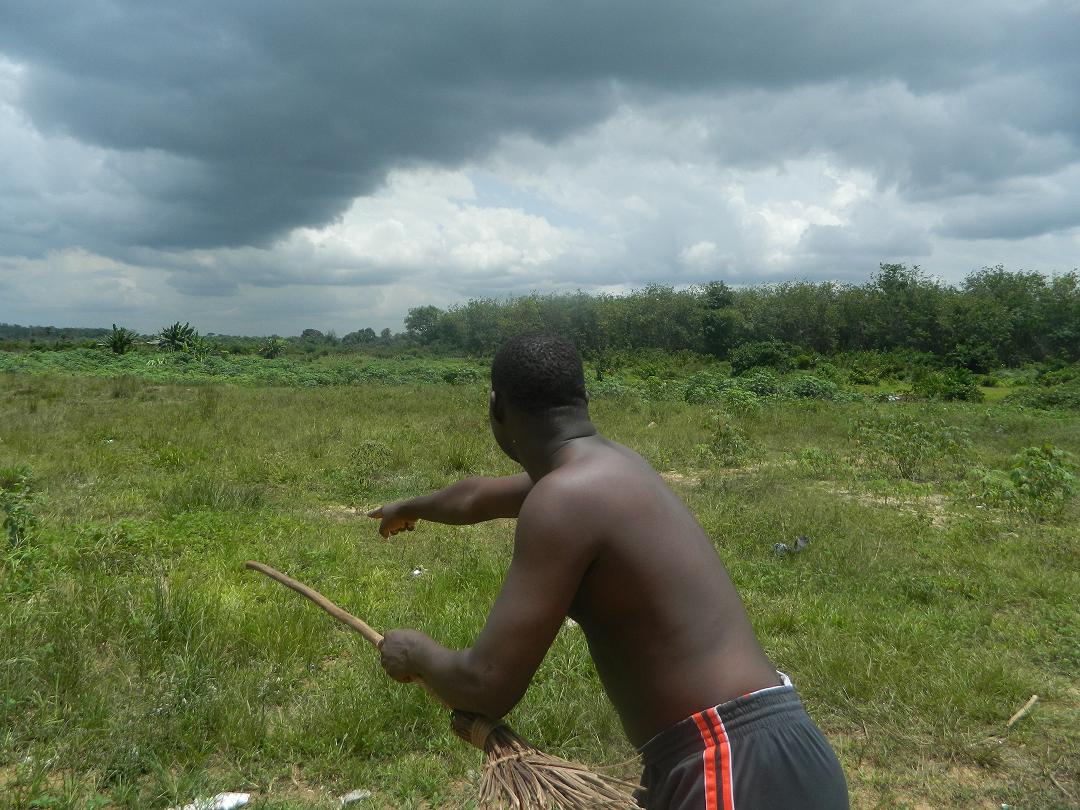Tens of thousands of Liberians were displaced during the 1999-2003 civil war. Many returned to their villages to find their land had been sold on or taken over by neighbours. Disputes over land occurred all over the country, but were mainly concentrated in Nimba, Lofa and Bong counties, which had high levels of displacement.
Since 2009 many of the neighbour-neighbour disputes have been resolved without too much difficulty, given that the conflicting parties already had an established relationship, and thus a shared interest in negotiating. said Gregory Kitt, project manager with NGO Norwegian Refugee Council, which has helped resolve hundreds of land disputes over the past decade.
In recent years, such disputes have reduced slightly, said Kitt. "This is an indication of the progress Liberia has made to become more stable."
Land reform was identified by the Truth and Reconciliation Report as one of the priorities for boosting long-term stability.
"We've made a lot of progress over the past three years. We've sorted out at least five dozen cases," Cecil Brandy, chairman of the Land Commission, told IRIN. But dozens of cases continue to come in each month, he added - many of them related not to displacement but to weak land ownership laws that insufficiently respect people's property rights and can lead to corrupt practices. "On a daily basis we are intervening in land fights across the country. Our files are filled with too many cases. Families are at loggerheads. It is hectic."
Parallel laws
Land ownership in Liberia is based on Common Law which requires an owner to have a title deed. But a parallel system of traditional law, based on verbal agreement, is also prevalent, creating widesperead confusion over who owns what. Landowners as a result, often sell to multiple buyers, opening up room for conflict.
During the civil war, fraud was rife with many illegitimate land-related documents registered. "This criminal practice must stop. They make fraudulent transactions without the involvement of the real landowners. Because of this, now as Liberians return from Ghana, Sierra Leone and Guinea, they are facing major problems with their land," said Brandy.
The Commission is trying to set up a better land registry system so citizens can more easily access land ownership documents, and at least know what their legal ownership status is. And it has submitted a criminal conveyance bill to the Liberian legislature to deal with suspected criminals involved in multiple land sales. Brandy hopes the bill will soon become law.
The Liberia Land Commission is an autonomous government body, with a staff of 25 civil servants, set up to shape land reform policy in Liberia.
Ciapha George, 45, is currently battling another family for ownership of his plot of land in the capital, Monrovia: unbeknown to him, the land had been sold to someone else before he bought it.
The case went to court and the judge recently ordered him to demolish his house and turn it over to the former owner. "The seller misled me. Right now I am the loser. All my efforts have been in vain," he told IRIN. George's family is currently living in an abandoned building in the capital.
But the governance bodies set up to protect these laws remain weak, said Kitt, and until they are strengthened, civil society groups will continue to have to step in to try to resolve disputes before they end up in court.
The Land Commission must be more proactive in tackling this problem of multiple ownership, said Monrovia resident Prince King. "I have seen lives and properties destroyed because of land disputes. Liberia is just from war and we need to put these things behind us."
Some vulnerable families have never been given formal access to their land, said Brandy, who pointed out that one of the Commission's priorities is to make ownership more equitable by re-examining how deeds are distributed.
Communities versus investors
According to environmental NGOs, including Friends of the Earth Liberia, the local authorities and landowners have sold more than 1.5 million acres (607,028 hectares) of land to palm oil companies in Liberia over recent years, seriously threatening some communities' property rights.
"Over the past year and a half we've seen an increase in land conflicts between communities and investors trying to develop natural resources. It is clear that challenges are emerging," said Kitt.
pc/aj/cb
This article was produced by IRIN News while it was part of the United Nations Office for the Coordination of Humanitarian Affairs. Please send queries on copyright or liability to the UN. For more information: https://shop.un.org/rights-permissions





